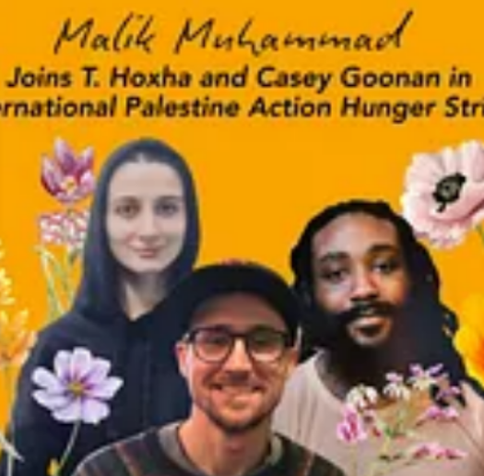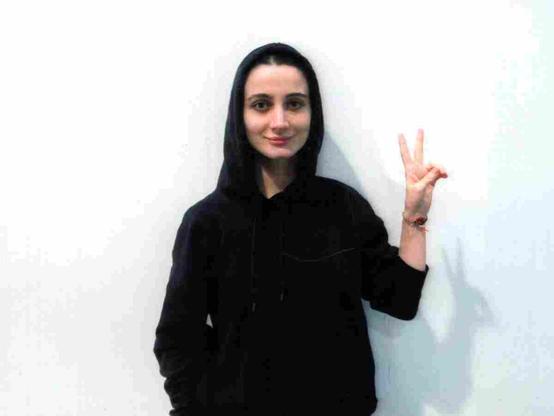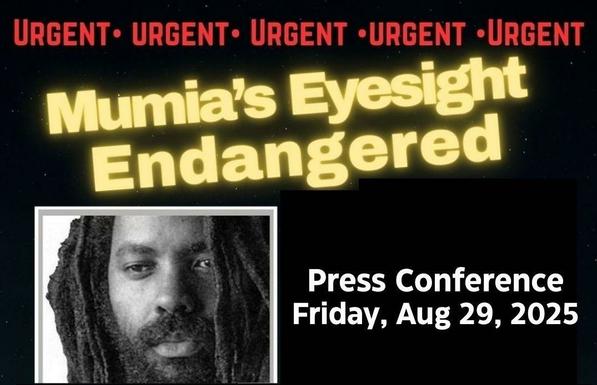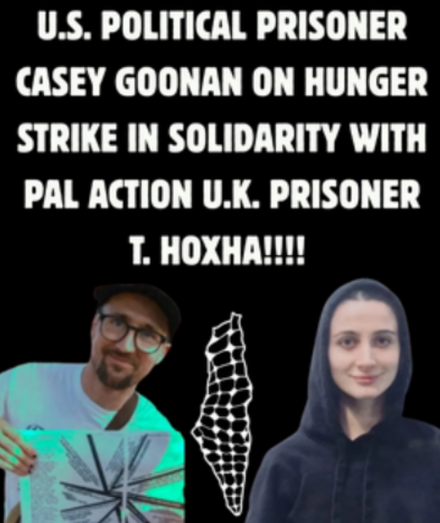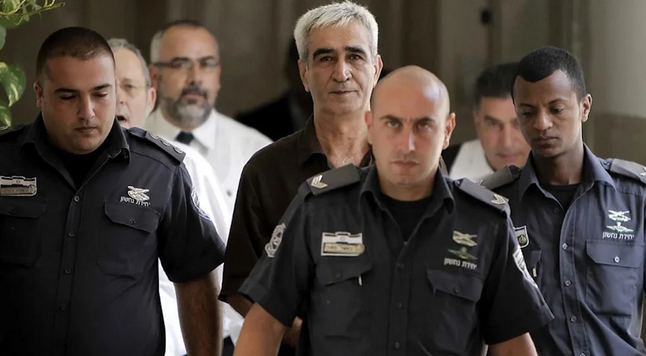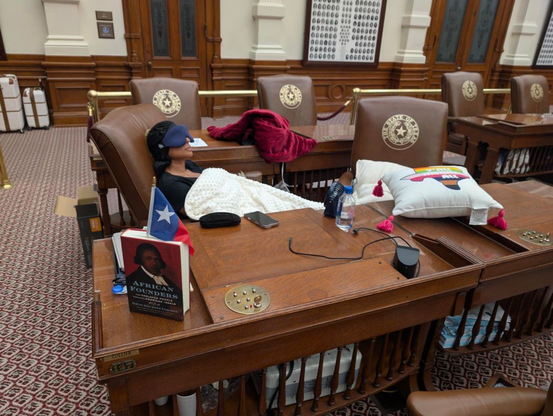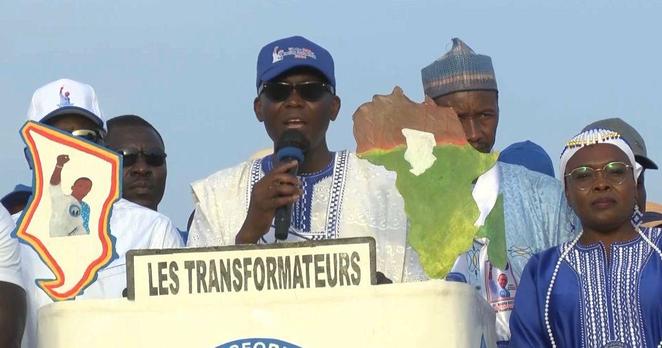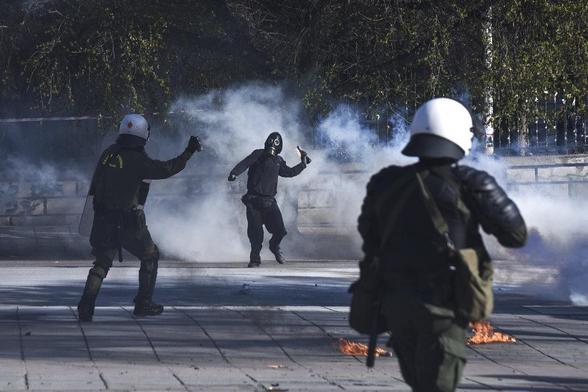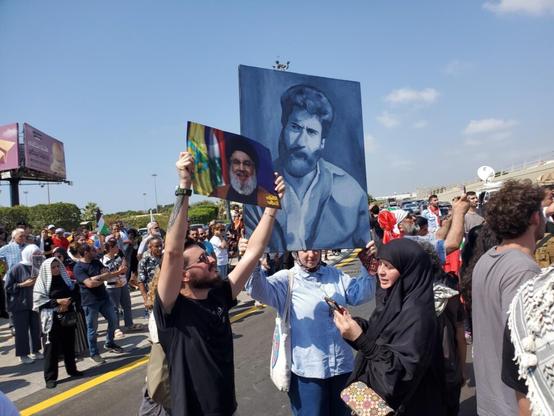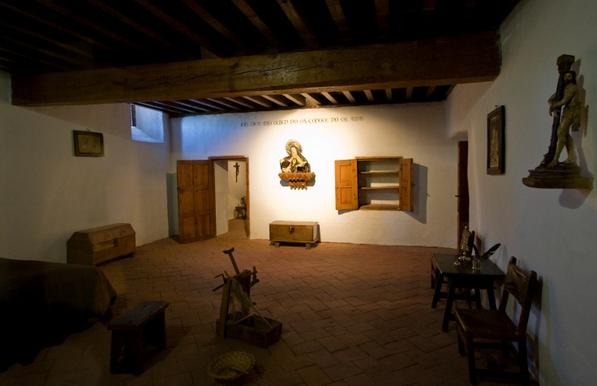International Hunger Strike Grows, Joined By Palestinian Captive of the George Floyd Rebellion
Take action in support of the hunger strikers here.
Three western political prisoners are now on hunger strike.
As of 6 September 2025, T, one of the Filton 24, is on Day 27 of her hunger strike in protest of HMP Peterborough’s unfair treatment of her as a “terrorist.” Across the ocean in California, captive from the student intifada Casey Goonan is on Day 11 of a strike in solidarity with T, and yesterday, when he learned about the now-international strike, Palestinian captive from the 2020 George Floyd Rebellion Malik Farrad Muhammad declared he was beginning another strike from the state of Oregon:
“Gaza is a prison. It is a living hell. They are starved. And [we as prisoners in the US] are disappeared and invisibilized. But we will not and should not be silent as our siblings suffer. If the international community won’t act, we should. Prisoners everywhere should not eat as long as Gazans starve. While the international community allows for forced apartheid in the West Bank, as they remain unphased by hundreds of thousands of deaths, unshaken by millions of people displaced, then let them witness prisoners all over the world starve with them.”
T’s supporters said she felt “humbled and deeply grateful” for the international support, including protests for her this week in Belgium, New York City, and Kuala Lumpur outside British embassies and consulates — “solidarity in action, not words,” as Casey said. Casey and Malik are joining Hoxha until her last remaining demand, written confirmation of the reinstatement of her job in the prison library, is met. The building pressure on HMP Peterborough and Sodexo, its private operator, has forced them to meet all T’s other demands.
But on Day 26, despite previous verbal confirmation of the reinstatement of her job, T received a letter from Sodexo, refusing her right to work, claiming the library job is “not appropriate” for her due to Palestine Action being illegitimately proscribed as a “terrorist group” by the Home Secretary. Sodexo is retrospectively applying proscription to punish T for a crime she has not yet been convicted of, and a group she has not been proven to be part of, which, at the time of her arrest, was yet not a proscribed group. T’s supporters note that she has previously worked in the library with no issues, but these new measures have been put in place by the prison’s “Joint Terrorism Extremism Unit” called “JEXU,” described by its founders as a unit creating “prisons within prisons.” Sam Gyimah, the former Minister of State for Prisons, Parole and Probation, who launched the unit, spoke proudly of his collaboration with the zionist entity as a strategic priority, and “Israel’s track record,” especially in “disruptive technologies,” as inspiration.
T’s supporters’ latest medical update indicated “T is very fatigued and, yesterday, reported blurry vision. Speaking is even more difficult than before. Her head is spinning, and her ketone levels had hit a record high. The prison has clearly felt the pressure — only now have they offered her a lift pass to move around and a temporary transfer to a downstairs cell to avoid the stairs. They are doing everything but what they should: transfer her to a hospital now.” The prison neglected to give T proper medical check-ups or electrolytes until Day 18 of her strike, dangerously late, and have yet to hospitalize her despite the growing demands.
As a diabetic, Casey has had to stop taking their insulin every day during the strike, which could be especially risky, but Casey’s support team shared they are “staying positive, and as of yet there haven’t been any serious complications with their health. They want to thank everyone for giving their attention to T Hoxha’s situation and taking action.” The ask is now for supporters to call local UK embassies and pressure them to contact the UK Ministry of Justice, in addition to keeping up calls to HMP Peterborough, and spreading the story as far as possible across the world.
Who is Malik Muhammad? The Long Shadow of the George Floyd Rebellion
Malik, the latest political prisoner joining the strike, is a Black Palestinian Muslim anarchist who participated in armed action against the racist Amerikan police during the 2020 uprising. He pled guilty to 14 felonies and received a 10-year prison sentence in 2022, the harshest federal sentence of any 2020 protestor. He is also a veteran of the US Army and “designated 100 percent disabled as a combat veteran because of extreme PTSD,” according to his lawyer. He mentions this openly on his blog: “I was a tanker in the army — and no, I’m not proud that I was part of the murder machine, so don’t thank me for my service.”
Inside Oregon’s Snake River Correctional Institution, Malik is no stranger to targeted political repression, isolation from other inmates, or hunger strikes. He spent all of 2024 and already eight-and-counting months of 2025 in segregation in a solitary cell without fresh air, recreation or socialization. He was “punished” for reasons like refusing water during his Ramadan fast. Guards violently tased him, shot him with firing darts, and kicked and punched him for speaking out against their racism. In November of 2024, Malik went on hunger strike and successfully won demands to have his property returned to him and to be released into general population. Malik wrote:
“I hoped to highlight the brutality of ODOC’s predatory, horrendous hole problems and practices. I have reached out and I have wrote, I filed grievances, sent letters to the Inspector General…They say the hole is where they put the worst of the worst “criminals”, but what they don’t say is that’s where they put the worst of the worst CO’s too. The ones who can’t work elsewhere because of their lack of respect, professionalism, decorum, and constant antagonizing of inmates.”
Despite this torture, Malik has never stopped politicizing his fellow captives, sharing his writing with the outside world (including on his blog and a forthcoming book of poems), and organizing for improved conditions, while never abandoning the ultimate goal of total revolution. He has also written extensively about Palestinian liberation and its ties to the Black prisoners’ movement in Amerika.
Some excerpts of Malik’s writing from April 2024:
“Mujahadeen, “muslim soldier”, that’s what I am, that’s the cloth I’m cut from…Blockade the ports, don’t ship Israel shit we need to shut shit down like we did for Floyd, because like Floyd, these are our brother and our sisters, our sons and our daughters…”
“I envy your opportunity to do those things, there wouldn’t be a soul on earth that could stop me going. I’d spend my last, I’d risk it all, I have an immense love for my homeland, but a more intense love for freedom from oppression and a great disdain for the oppressors. Do anything and everything that can be done to aid the cause, because it’s worthy, and don’t let anyone stop you.”
Last month, in the tradition of the martyrs George Jackson and Jonathan Jackson, Malik “participated in Black August gatherings where Black prisoners would complete their daily exercise challenge together and share meals,” telling the outside that he and his siblings inside “always say it shouldn’t be Black August for just one month, it should be Black August every day of the year.”
In my last piece on this strike, I discussed the abandonment of political prisoners in Amerika compared to Palestine, particularly the prisoners of this latest phase of the Palestine “solidarity” movement in the West, like Casey Goonan, Elias Rodriguez, Tarek Bazrouk, Jakhi McCray, and Mohamed Sabry Soliman. The political prisoners of the George Floyd Rebellion were similarly abandoned, and the historic militancy of that rebellion neutralized and erased through counterinsurgency, co-opted by NGOs and politicians, not unlike the process of internal counterinsurgency that has been taking place within the Palestine “solidarity” movement. “A militant nationwide uprising did in fact occur. The progressive wing of the counter-insurgency seeks the denial and disarticulation of this event,” to quote Idris Robinson in How It Might Should Be Done, one of the best retrospectives of 2020. Most people in our movements have never heard of Malik and he is still one of the best known of the 2020 prisoners, who can all be found and supported at uprisingsupport.org. Glory to our prisoners and glory to the Resistance.
Take action in support of the hunger strikers here. Follow instagram.com/prisoners4palestine and x.com/Workshops4Gaza for updates.
Stay updated with Casey’s case and their upcoming sentencing at freecaseynow.noblogs.org/.
Write to Malik and send him a book from his wish list:
Malik Muhammad
#23935744
Snake River Correctional Institution
777 Stanton Blvd.
Ontario, OR 97914-8335
Source: Calla Walsh Substack
https://abolitionmedia.noblogs.org/?p=21286
#23935744 #CaseyGoonan #malikMuhammad #northAmerica #palestine #politicalPrisoner #repression #resistance #Solidarity #tHoxha #uk
